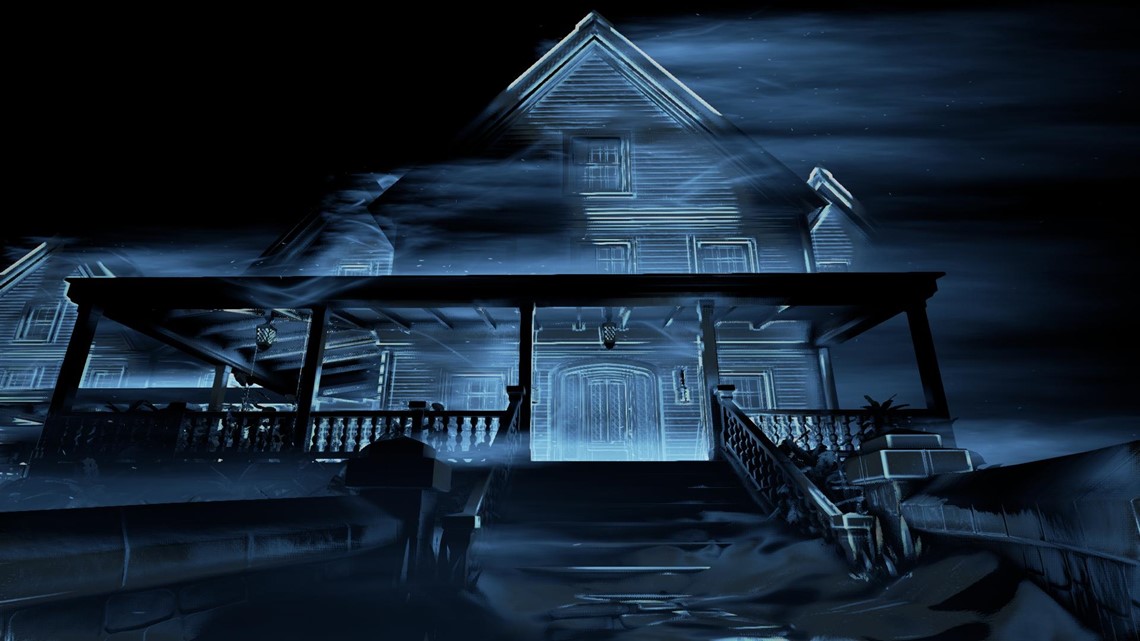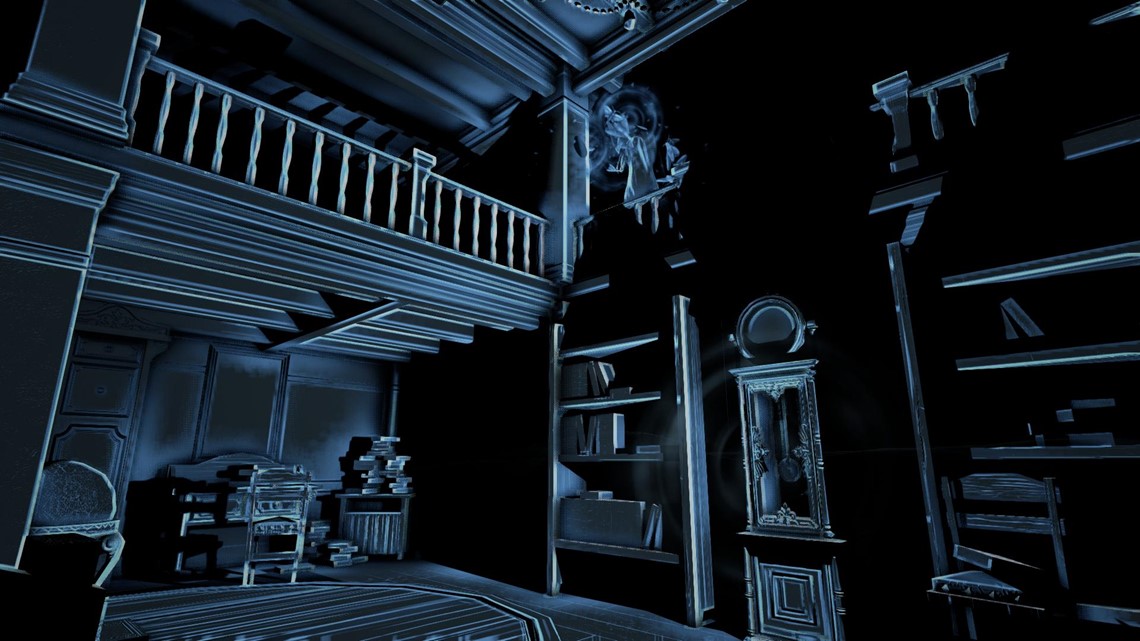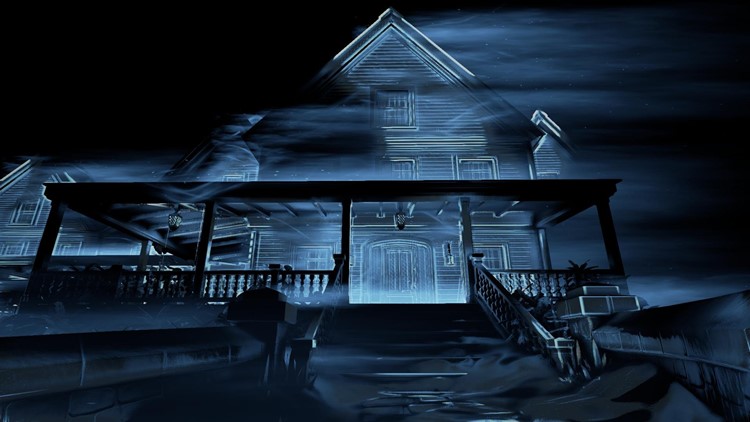

- reviewed on PlayStation 4 / rated M / $22.99 / released May 2017
- OFFICIAL SITE: thedeependgames.com
- PURCHASE LINK: PlayStation Store
- FINAL: You can SKIP this game. 2 out of 5 stars
In “Perception,” you play as a blind woman inexorably drawn to explore an old, abandoned house. The game does its best to simulate being blind: everything around you is completely black until you tap your cane and reveal your surroundings via echolocation. Live-rendering an environment based on aural information is a great visual trick that may be unique to the world of video games, but “Perception” has trouble turning that into an interesting game.
Bringing echolocation to life is the game’s impressive central conceit. The soundwaves made from your cane or footsteps ripple outward, highlighting the room’s features with neon lines. These lines quickly fade, requiring you to repeatedly tap as you walk to keep up the floor plan, although you can of course navigate in just darkness. “Perception” excels at creating a temporarily beautiful world of delicate wireframes amid super-black shadows.
The game begins with Cassie entering a spooky mansion, complete with whispering voices, vanishing ghosts and the occasional jump scare. The idea is that the house is calling to her – for reasons that remain mysterious throughout the game’s story – as it warps her across time to encounter the ghosts of previous owners.
Since Cassie is blind, the game does not bother with granular visual details like curtain patterns or wallpaper designs. This means if you find a letter, you can’t immediately read it; it will just appear as a blank square to Cassie’s acoustic wayfinding. Cassie has a few ways around this, including using her phone to scan and read it to her, or by sending a picture to someone who will describe it to her. (The latter is particularly fun since it is one of the few times you get to hear from anybody outside of the house. Imagine taking pictures from a horror scene and asking a well-meaning stranger to describe them to you.)


These are fine solutions, but “Perception” can’t find a thematic way through the biggest problem of all: how do you maintain the visual impairment illusion and still lead players through a heavy-narrative video game? “Perception” cheats by perpetually marking a spot somewhere in the dark world in front of you. It doesn’t matter if Cassie can somehow “see” this objective, it’s there so you, the player, know where to go next.
“Perception” basically drags you from place to place. You end up getting bounced around the house like a pinball, always chasing the next beat. It’s an unfortunate, overly-linear structure that waters down the game’s mystery. If you stray too far outside of the current area, you run up against suddenly-locked doors. And if you make too much noise, you trigger the appearance of the malevolent Presence, an unbeatable enemy that kills you immediately.
Getting found by the Presence just resets you to the last story checkpoint, so it’s never a big deal. It’s just scary because it tends to show up with little warning and unless you’re lucky enough to be near a hiding spot, there’s nothing you can do to stop it from catching you.
What is the Presence? Who knows. “Perception” can be as opaque as the ever-present darkness. The house’s previous occupants are explained in drips and drabs, their stories often obscured by horror movie clichés like vengeful witches and blank-eyed baby dolls. Ghosts explode into clouds of moths for no reason than exploding into clouds of moths is a neat horror movie effect.
It never feels like the story clicks and suddenly the mysteries all make sense. Instead, it feels like you missed something… and when the game has led you around by the nose for the entire time, you feel a little cheated.
“Perception” works hard to parlay a sighted person’s fear of the dark into an understanding of how someone who is visually impaired lives in that darkness. The resultant technology is impressive, but the ghost story that ties it all together needed to be more transparent.
“Perception” is available for PlayStation 4, Xbox One and PC. This review based on product supplied by the developer. Images courtesy The Deep End Games.



